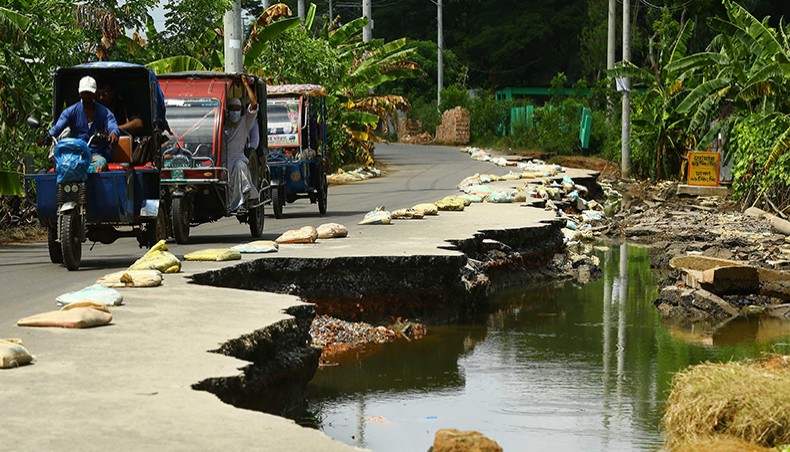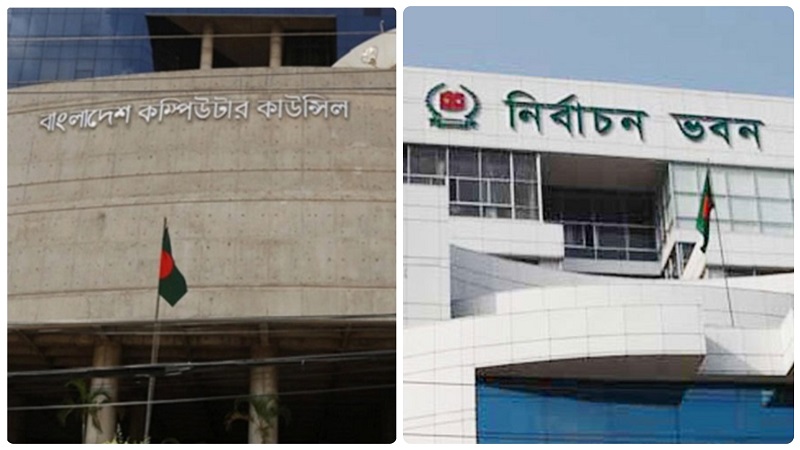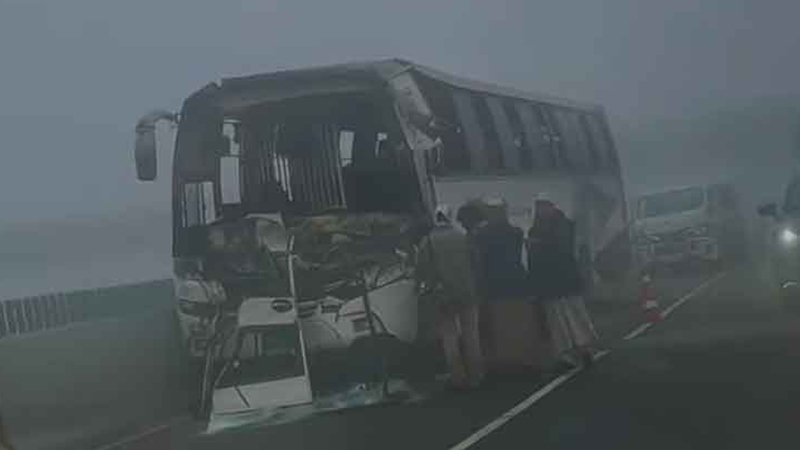With seven deaths in the last 24 hours until 8:00am on Tuesday the health emergency and control room confirmed that the flood claimed 198 lives, the second largest flood casualties in the last seven years.
Although rivers largely continued to recede all over Bangladesh, hundreds of thousands people among the 5.5 million flood-affected still remained stranded in many of the 33 districts, including Dhaka.
Many of them continued to suffer from severe shortage of food and drinking water as they struggled to restart lives and needed to rebuild their homes that lay in ruins.
‘We returned home knowing that the disaster is far from over,’ said Shahin Miha, a resident of Ramna of Chilmari in Kurigram.
‘Another episode of our struggle has just begun,’ he said, alluding to the financial crisis that lies ahead.
In Dhaka, roads just started to surface from under the water in low-lying areas in the capital.
‘Floodwater is receding but it will take a while for people to get back to the normal rhythm of life,’ said Mohammad Atikur Rahman, councillor of ward No 70, Dhaka South City Corporation.
The number of lives lost according to the health authority due to the flood that continued for 46 days until Tuesday is far higher than the casualty figure given by the disaster authority.
The disaster authority so far counted only 43 deaths, all because of drowning, which greatly mismatch with the flood casualty data preserved by local government offices.
Of the deaths reported by the health emergency control room, 166 died because of drowning and 16 from snakebite.
Another 13 people were also killed by lightning in flood-affected areas, three from diseases related to flooding, including diarrhoea, said the health control room.
The casualty estimate prepared by National Disaster Response Coordination Centre did not match with the casualty report preserved at the local government offices and sent by their officers from the field.
For instance, the divisional commissioner’s office in Rangpur recorded 67 deaths by drowning in Kurigram alone since the flooding had begun on June 27 while the NDRCC reports only nine deaths in the district, New Age correspondent in Lalmonirhat reported.
The NDRCC list of deceased does not include the names of Hafiz, 13, and Rashida, 9, siblings the flood washed away at Jatrapur of Chilmari in Kurigram on July 27. Their fisherman father was out working when floodwater swept away his home along with his kids.
The tragedy touched everyone in the area and was recorded at the divisional commissioner’s office.
The district relief and rehabilitation officer in Jamalpur reported 24 deaths by drowning until July 23 but only 15 of them were recorded in the casualty list prepared by the NDRCC at the disaster management and relief ministry.
Kurigram deputy commissioner Rezaul Karim said that his office does not report every death caused by flooding because there is not enough allocation from the government to compensate the disaster victims.
‘The government has a policy to compensate disaster victims but the allocation needed for implementing the policy is often missing,’ said Rezaul Karim.
Lalmonirhat deputy commissioner Abu Zafor said that the last time he got any allocation for compensating the families of deceased disaster victim was in 2016.
After 2016, two more floods hit the country in 2017 and 2019, claiming 257 and 119 lives respectively, according to the health emergency control room.
The figure given by the health control room also seems an underestimation because it said that only 23 people died in Kurigram this year.
The Rangpur divisional office recorded 180 deaths by drowning and due to snakebite in eight of its flood-affected districts alone, not including other worst-hit districts such as Sirajganj and Jamalpur.
This year 33 districts were affected by flooding enveloping 40 per cent of the country’s land.
‘A complete picture of destruction caused by a disaster remains elusive when we tend to see it through our own spectacles,’ said Gawher Nayeem Wahra, convenor of the foundation for disaster forum.
The health ministry only reports the cases that come to the hospitals as many casualties never get reported, he explained.
A Flood Forecasting and Warning Centre bulletin said that the Brahmaputra was swelling although the rivers flowing above their danger marks at seven points in central Bangladesh continued receding.
Floodwater might keep receding from Natore, Manikganj, Rajbari and Faridpur districts and low-lying areas of Dhaka city through Wednesday, said the bulletin.
Heavy rains up to 115mm in the last 24 hours till 9:00am on Tuesday was recorded over northe













